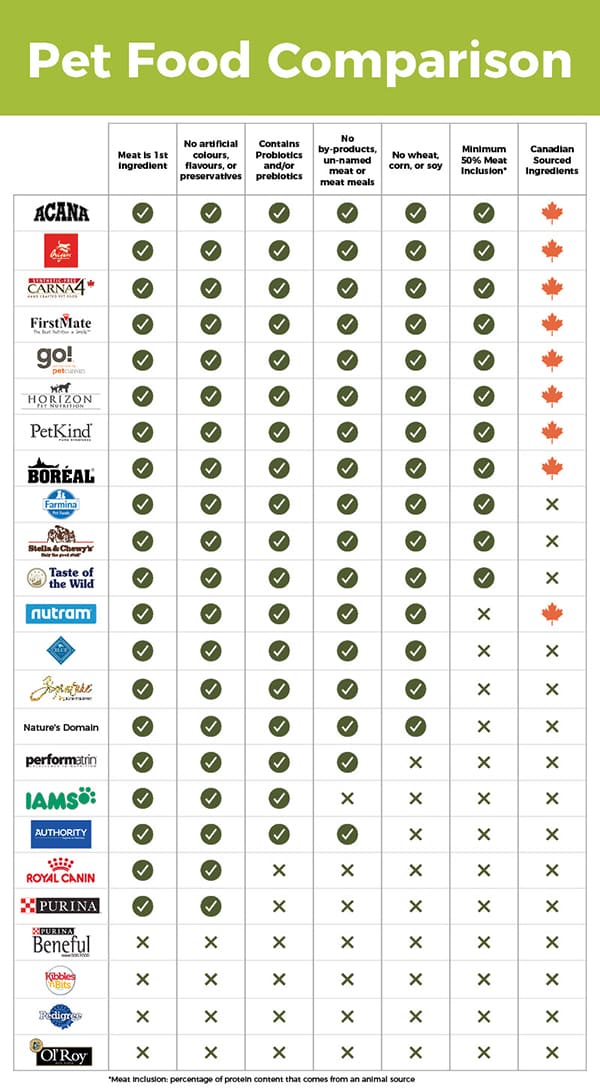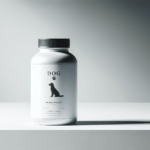
Welcome to the “Comparative Guide: Best Diets for Specific Canine Health Needs.” As a devoted dog owner, you want nothing but the best for your furry friend, and this comprehensive guide is here to help you navigate through the myriad of dietary options available to address your dog’s health concerns. From enhancing joint health with glucosamine and chondroitin supplements, to promoting a shiny coat with omega-3 fatty acids, you’ll find expert insights into tailored nutrition plans that cater to dogs of all breeds and ages. With input from veterinary professionals and a focus on natural, high-quality ingredients, this guide aims to ensure your canine companion enjoys optimal health and well-being throughout their life. Have you ever wondered if you’re feeding your dog the right diet to support their specific health needs? As a dog owner, you want the best for your furry companion, and diet plays a crucial role in maintaining their health and well-being. With the abundance of dog food options and health supplements available today, understanding what’s best for your dog can be overwhelming.
In this friendly guide, we’ll break down the best diets tailored to specific canine health needs, explore the role of supplements, and ensure you’re well-equipped to make informed decisions for your dog’s overall health. Ready to dive in?

Understanding Your Dog’s Health Needs
Every dog is unique, and their diet should cater to their specific health needs. Whether your dog is young or old, active or less active, they have unique requirements that you, as a responsible dog owner, should address.
The Role of a Veterinarian
Before making any major changes to your dog’s diet, always consult with your veterinarian. Veterinarians are trained professionals who understand animal health and can provide personalized advice based on your dog’s breed, age, health condition, and dietary needs.
Common Canine Health Concerns
Certain health issues are more prevalent in dogs and can often be managed or alleviated by tailored diets and nutrients. These include:
- Joint health
- Skin and coat health
- Digestive health
- Weight management
- Dental health
- Immune system support
Now, let’s explore the diets that can support these specific health needs.
Best Diets for Joint Health
Joint health becomes particularly important as dogs age. Conditions like arthritis or hip dysplasia can significantly impact their quality of life.
Key Nutrients for Joint Health
- Glucosamine and Chondroitin: These are natural substances found in and around cartilage cells. They’re often included in supplements to support joint health.
- Omega-3 Fatty Acids: Known for their anti-inflammatory properties, they can help reduce joint pain and stiffness.
Recommended Diets
- Senior Dog Diets: Often formulated with added glucosamine and chondroitin.
- Omega-3 Rich Foods: Diets that include fish oil or flaxseed.
Example Diet:
| Brand | Product Name | Key Features |
|---|---|---|
| Royal Canin | Mobility Support | Includes glucosamine and chondroitin |
| Hill’s Science Diet | Adult 7+ Senior Vitality | Enriched with omega-3 fatty acids |
Best Diets for Skin and Coat Health
A shiny coat and healthy skin are often indicators of a well-fed dog. However, skin conditions can arise due to allergies, parasites, or nutritional deficiencies.
Key Nutrients for Skin and Coat Health
- Omega-3 and Omega-6 Fatty Acids: These fatty acids help maintain healthy skin and a glossy coat.
- Vitamin E: An antioxidant that supports immune function and healthy skin.
Recommended Diets
- Skin-Specific Formulas: Formulated to address skin sensitivities and improve coat health.
- Hypoallergenic Diets: Avoid common allergens if your dog has food sensitivities.
Example Diet:
| Brand | Product Name | Key Features |
|---|---|---|
| Purina Pro Plan | Sensitive Skin & Stomach | Rich in omega-6 fatty acids |
| Blue Buffalo | Skin & Coat Care Formula | Contains fish oil and flaxseed |
Best Diets for Digestive Health
Your dog’s digestive system is fundamental to their overall health. Digestive issues like diarrhea or constipation can be symptoms of a poor diet.
Key Nutrients for Digestive Health
- Probiotics: These beneficial bacteria support a healthy gut microbiome.
- Prebiotics: Serve as food for probiotics, promoting their growth.
Recommended Diets
- Diets with Added Probiotics: Aid in maintaining a balanced gut flora.
- Easily Digestible Diets: Specific formulas designed for sensitive stomachs.
Example Diet:
| Brand | Product Name | Key Features |
|---|---|---|
| Royal Canin | Gastrointestinal Low Fat | Formulated with probiotics and dietary fibers |
| Hill’s Prescription Diet | i/d Digestive Care | Contains prebiotic fibers |

Best Diets for Weight Management
Maintaining a healthy weight is crucial for your dog’s overall well-being. Excess weight can lead to numerous health issues, including diabetes and joint problems.
Key Nutrients for Weight Management
- High-Quality Protein: Helps maintain lean muscle mass while losing fat.
- Fiber: Aids in promoting a feeling of fullness.
Recommended Diets
- Weight Management Formulas: Low in calories but high in necessary nutrients.
- Portion Control Diets: Ensure your dog gets the right amount of food without overfeeding.
Example Diet:
| Brand | Product Name | Key Features |
|---|---|---|
| Purina ONE | Healthy Weight Formula | High in protein, low in calories |
| Nutro | Ultra Weight Management | Includes added fiber for satiety |
Best Diets for Dental Health
Dental health is sometimes overlooked, but it plays a vital role in your dog’s overall health. Poor dental hygiene can lead to more severe health issues.
Key Nutrients for Dental Health
- Calcium and Phosphorus: Essential for healthy teeth.
- Tartar-Control Ingredients: Help reduce plaque and tartar buildup.
Recommended Diets
- Dental Diets: Formulated to support dental health.
- Dental Chews: Aid in mechanically removing plaque and tartar.
Example Diet:
| Brand | Product Name | Key Features |
|---|---|---|
| Hill’s Science Diet | Oral Care | Designed to reduce plaque and tartar buildup |
| Greenies | Dental Chews | Mechanically cleans teeth during chewing |

Supplements to Support Specific Health Needs
Beyond tailored diets, supplements can play a significant role in maintaining and improving your dog’s health. They can provide additional support where diet alone might fall short.
Joint Health Supplements
Example Supplements:
- Glucosamine and Chondroitin Supplements: Support cartilage health and joint mobility.
- Omega-3 Fatty Acids: Reduce inflammation and improve joint health.
Skin and Coat Supplements
Example Supplements:
- Omega-3 and Omega-6 Supplements: Promote a shiny coat and healthy skin.
- Biotin and Vitamin E: Support skin barrier function.
Digestive Health Supplements
Example Supplements:
- Probiotics and Prebiotics: Enhance gut health and aid in digestion.
- Digestive Enzymes: Help break down food for better nutrient absorption.
Weight Management Supplements
Example Supplements:
- L-Carnitine: Aids in fat metabolism and weight loss.
- Fiber Supplements: Promote a feeling of fullness.
Dental Health Supplements
Example Supplements:
- Enzymatic Oral Hygiene Chews: Reduce plaque and tartar formation.
- Dental Sprays and Rinses: Help maintain oral hygiene.
Special Considerations for Different Stages of Life
Different life stages require different dietary considerations. What works for a puppy may not be suitable for a senior dog.
Diets for Puppies
Puppies need diets rich in protein, fat, and essential vitamins for growth and development. Look for foods labeled for “puppy growth” to ensure they meet these needs.
Example Diet:
| Brand | Product Name | Key Features |
|---|---|---|
| Blue Buffalo | Life Protection Puppy | High in protein and DHA for brain development |
| Hill’s Science Diet | Puppy Healthy Development | Balanced nutrients for growth |
Diets for Adult Dogs
An adult dog’s diet should focus on maintenance. Balanced nutrients are essential to support their everyday activity and health.
Example Diet:
| Brand | Product Name | Key Features |
|---|---|---|
| Purina Pro Plan | Adult Shredded Blend | Rich in protein and antioxidants |
| Merrick | Grain-Free Texas Beef & Sweet Potato | Grain-free, high-protein |
Diets for Senior Dogs
Senior dogs often need special diets to address joint health, weight management, and overall wellness. These diets usually include additional supplements for bone and joint support.
Example Diet:
| Brand | Product Name | Key Features |
|---|---|---|
| Hill’s Science Diet | Adult 7+ Senior Vitality | Enhanced with omega-3 and DHA for brain health |
| Nutro | Ultra Senior | Rich in omega-3 fatty acids and antioxidants |

Monitoring and Adjusting Your Dog’s Diet
Feeding your dog the right diet is not a one-time task. It requires ongoing evaluation and adjustments.
Signs of a Healthy Diet
- Healthy Weight: Your dog maintains an appropriate weight.
- Shiny Coat and Healthy Skin: Indicates good nutrition and proper care.
- Regular Bowel Movements: Consistent and healthy stool indicates proper digestion.
- Good Energy Levels: Your dog should be active and playful.
When to Consult Your Vet
If you notice any of the following signs, it might be time to revisit your dog’s diet and consult your veterinarian:
- Sudden Weight Loss or Gain: Can indicate underlying health issues.
- Persistent Digestive Issues: Such as diarrhea or constipation.
- Skin and Coat Problems: Persistent itching, dandruff, or dull coat.
- Lethargy: Low energy levels can be a sign of nutritional deficiencies.
Conclusion
Feeding your dog the right diet tailored to their specific health needs can be a game-changer in their overall well-being. From joint health to dental health, weight management, skin and coat care, and digestive health, understanding the nutritional requirements and the best food options can help you make informed decisions that benefit your furry friend.
You don’t have to navigate this journey alone. Always feel free to consult with your veterinarian to ensure that you’re providing the most suitable diet and supplements for your dog’s unique health needs. With the right knowledge and approach, you’re well-equipped to keep your canine companion healthy, happy, and thriving. Happy feeding!








